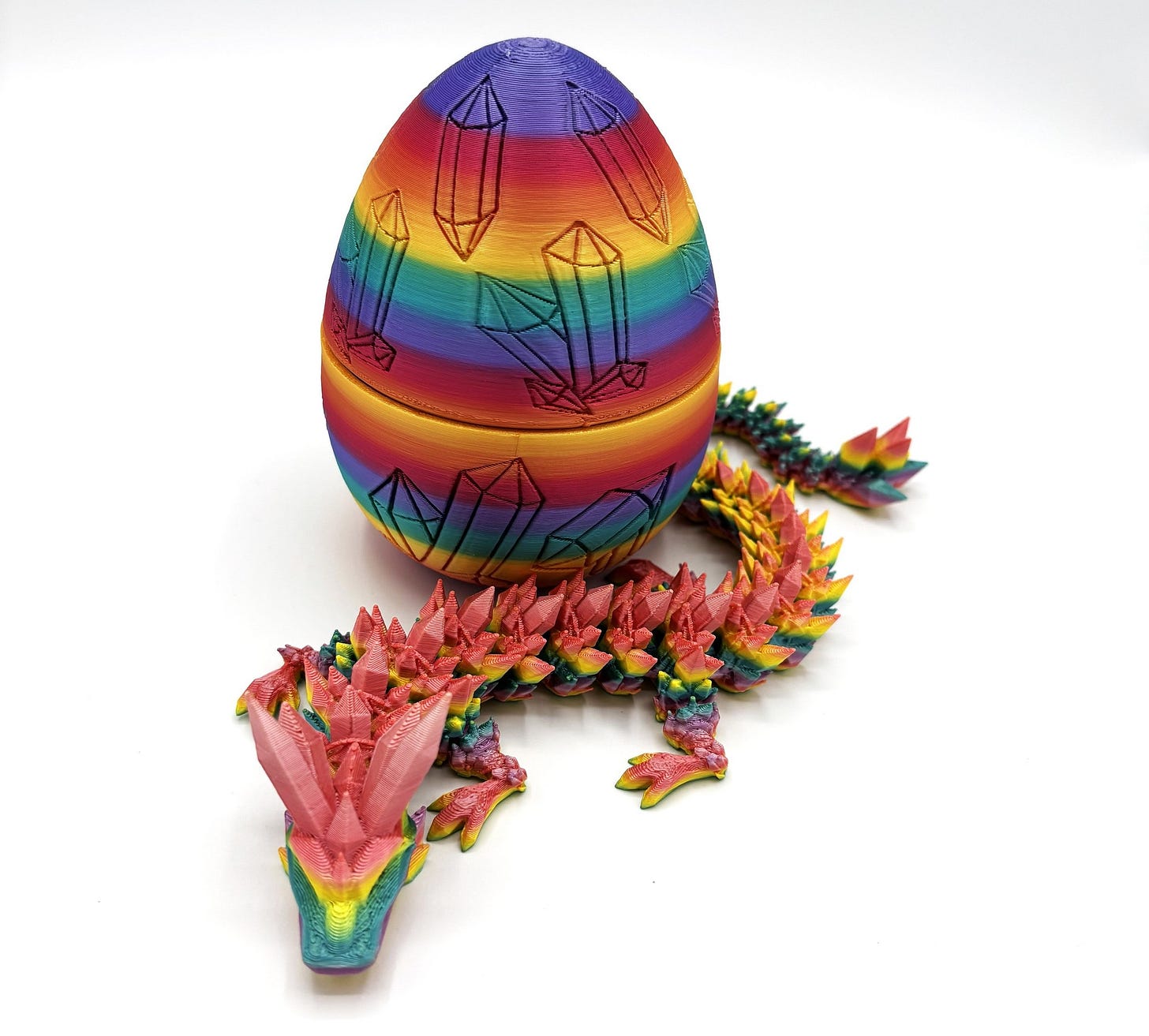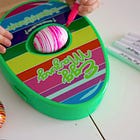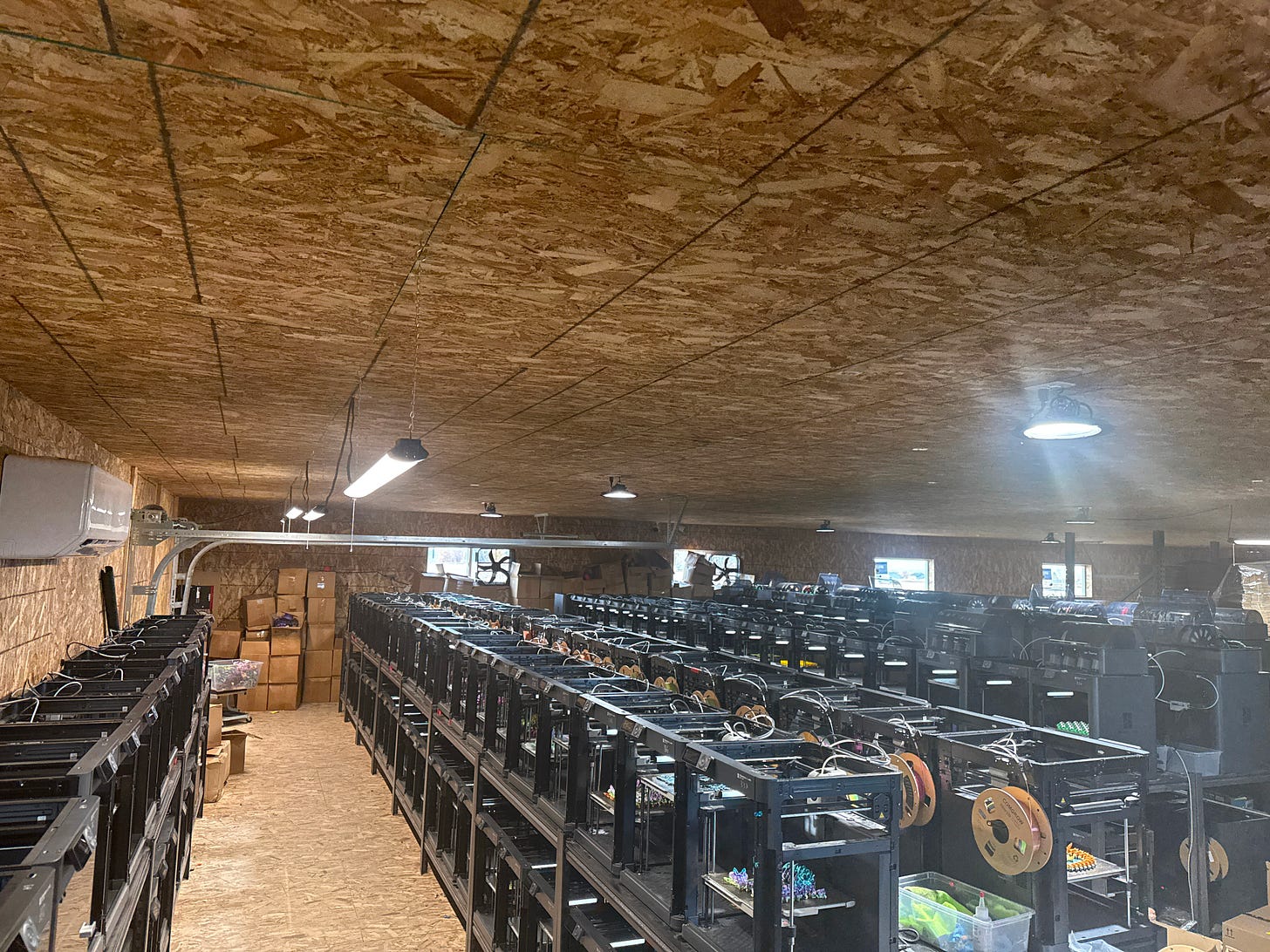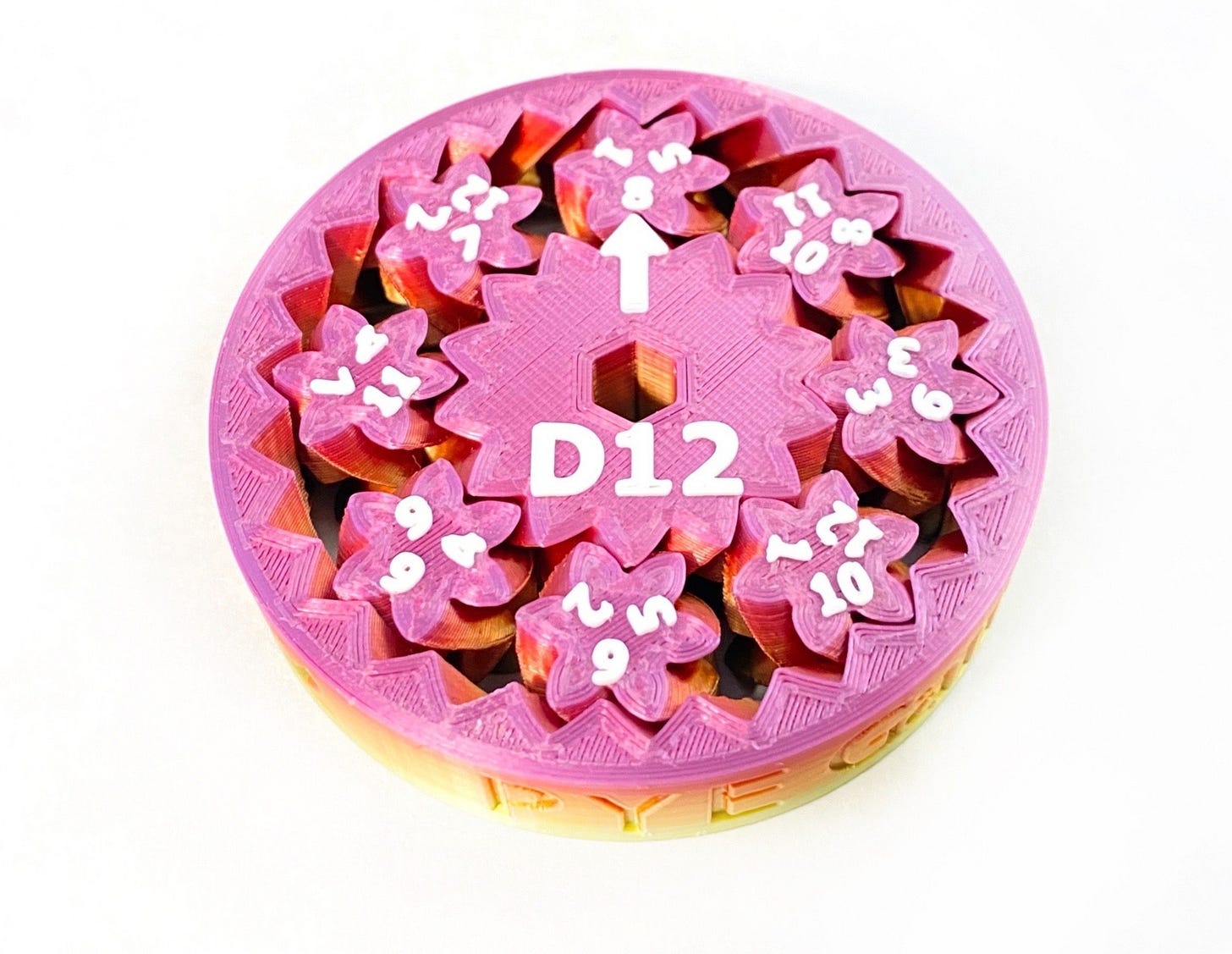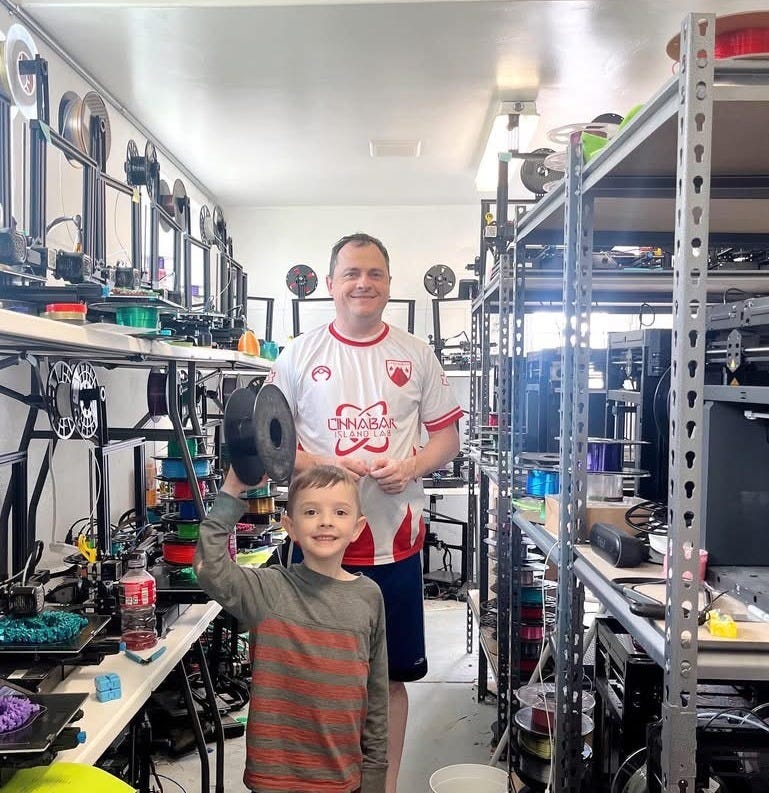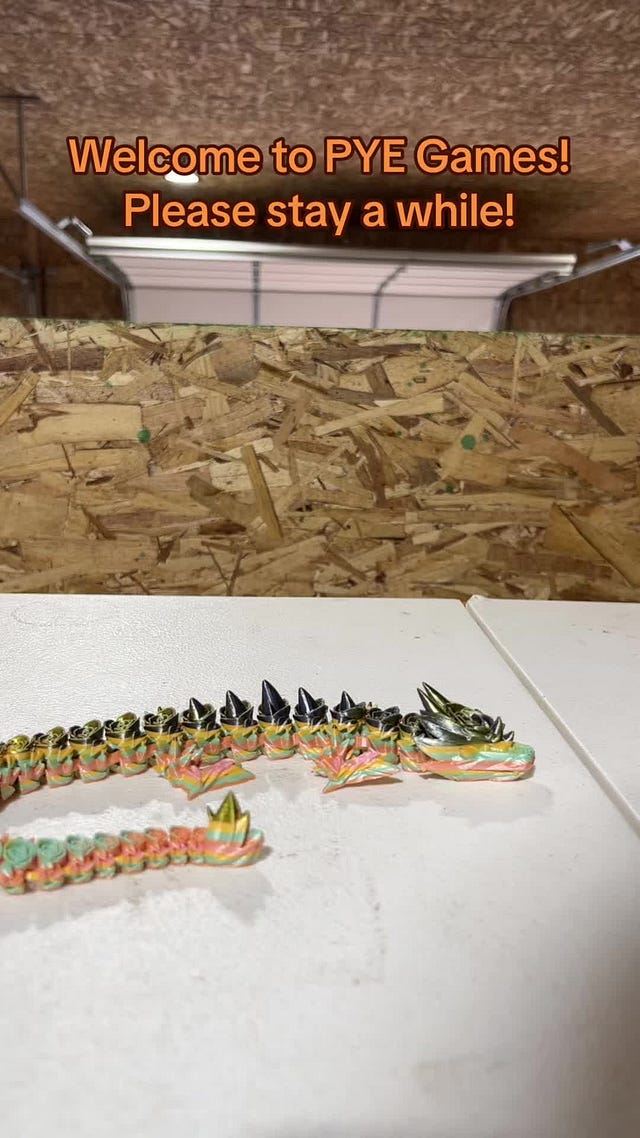China tariffs: An opportunity for this Idaho toymaker's 3D-printing setup
Paul Young, who owns a small-scale toy business in Idaho with a wildly successful product — thanks to TikTok — has analyzed the potential impact China tariffs could have on his young business.
He’s concluded that rather than being fearful, he should be excited.
“For my company, tariffs could be an opportunity,” Young said in an interview with Bagable.com.
Here’s why.
China is the world’s leading maker and exporter of toys. Most toys sold in the US are still made in China, even as leading toymakers such as Mattel and Hasbro have shifted some production away from China to other countries to offset rising manufacturing costs there.
On Feb. 1, President Donald Trump announced 10% tariffs on US imports from China. China accounts for more than $400 billion dollars worth of consumer products that come into the US— everything from clothes, shoes, cellphones to toys.
American toymakers with considerable production in China could raise their prices to mitigate the cost of the new tariffs on their business, and those price increases could ultimately reach shoppers of their products.
But Young sees the situation differently for PYE Games, the company he founded in 2019.
PYE Games manufactures all of its toy products in the United States, using 3D printers. Its best-selling toys are 3D-printed flexible dragons that curl up inside of a 3D-printed egg and a line of 3D-printed dice spinners.
“Since we are already trying to produce fully in the United States, the tariffs won’t significantly affect our cost to produce toys,” he said. “And we can now be a resource for other businesses looking to make products domestically and be slightly more competitive in pricing, compared to using international manufacturers.”
“We were baffled by orders pouring in”
PYE Games’ toy manufacturing setup fully relies on hundreds of 3D printers.
“We started with just 12 printers back in 2019 with funds from a Kickstarter campaign for our first product, a fidget spinner dice,” said Young, who at time worked for a large vendor delivering bread products to Walmart.
“I was waking up at one or two in the morning for the delivery jobs and worked 12-hour days, five days a week. I was missing time with my family. So, I put my creative skills to use and designed boardgames to enjoy the time I did have with my family,” aid.
He didn’t quit his day job but continued to pursue his side passion. Although his board game idea hasn’t yet come to fruition, working on it surfaced another product concept that did take off, on TikTok.
It was a dice spinner.
“I had a buddy who had a 3D printer and I asked him if he could print the design I had in mind,” Young said. He had an inkling he was on to something after he showed the prototype to people on his delivery route, and they reacted excitedly.
Young turned to Kickstarter to crowdfund the first production run of his dice and raised $16,000 on the back of 75 orders. He used the funds to invest in 12 3D printers and fulfilled all of the orders.
Then, a global pandemic abruptly brought the early momentum to a standstill.
“Suddenly, we couldn't get the supplies we needed and our printers were standing idle,” he said. The business temporarily pivoted to meeting immediate emergency needs. “We decided to use the printers to make face shields for essential workers while we waited.”
In early November 2020, Young awoke to a series of persistent pings on his phone. It was a new order coming in every three minutes, he recalled.
“We were baffled by these orders pouring in,” Young said. A TikToker had created a video about Young’s dice spinner and it had gone viral with more than a million views.
In just two weeks, the video spurred 2,000 new orders and $100,000 in sales.
As Young scrambled to keep pace with demand, he ramped up production by adding more printers to a total of 66 3D printers.
He also set up a 3D print farm in Twin Falls, Idaho, which became a storefront for PYE Games. Young quit his day job in 2021, and with his wife, threw himself fully into his company.
Then came the dragons
Just as business picked up steam, Young spotted a unique design on TikTok for a flexible toy dragon.
Young immediately thought about the game Dungeons & Dragons. “I thought, well if you like the game then maybe you’d also like to have your own toy pet dragon,” he said.
“I was already set up with 66 printers. I could start making the dragons and test the market,” he said.
Young’s wife gave him the idea to 3D-print eggs in which to put the dragons and create a mystery aspect to the toy. The pair started selling the dragon egg toys (priced at $20 to $25) online, at various conventions, and through independent toy stores.
When TikTok Shop launched in the US in 2023, Young joined the platform to sell his 3D-printed dragon toys there, too. That move led to “the toy dragons becoming our most viral product,” he said.
From March 2023 to date, PYE Games has sold about 250,000 dragon egg toys.
Now, as Easter approaches, Young is bracing for a surge in demand beginning in March.
At the same time, he’s moving quickly to fully insulate his business from exposure to China.
“We still import raw material for the printers, from China. We’re spending $17,000 a week for the filament.”
 Tiktok failed to load.
Tiktok failed to load.Enable 3rd party cookies or use another browser
His goal is to set up production at home soon to make filament domestically.
“If we can create our own raw material here on site for our own printers, we can significantly bring down our costs. And if we overproduce the material, we can sell this materials from Idaho to other businesses for their 3D printing needs,” Young said.
He’s already invested $80,000 to buy filament production machinery and aims to have the facility up and running later this year.
Until then, he is concerned that new tariffs on China will raise his cost of acquiring raw materials.
“I would love to see toy production ultimately come back to American. It’s very difficult because China has the infrastructure to do it cheaply,” said Young.
“At the end of the day, I am a businessman. If a company is hit hard by the tariffs, and I have the production capability to help out, I’m ready to ask, ‘What do you need? What can I make for you here in America?’”



